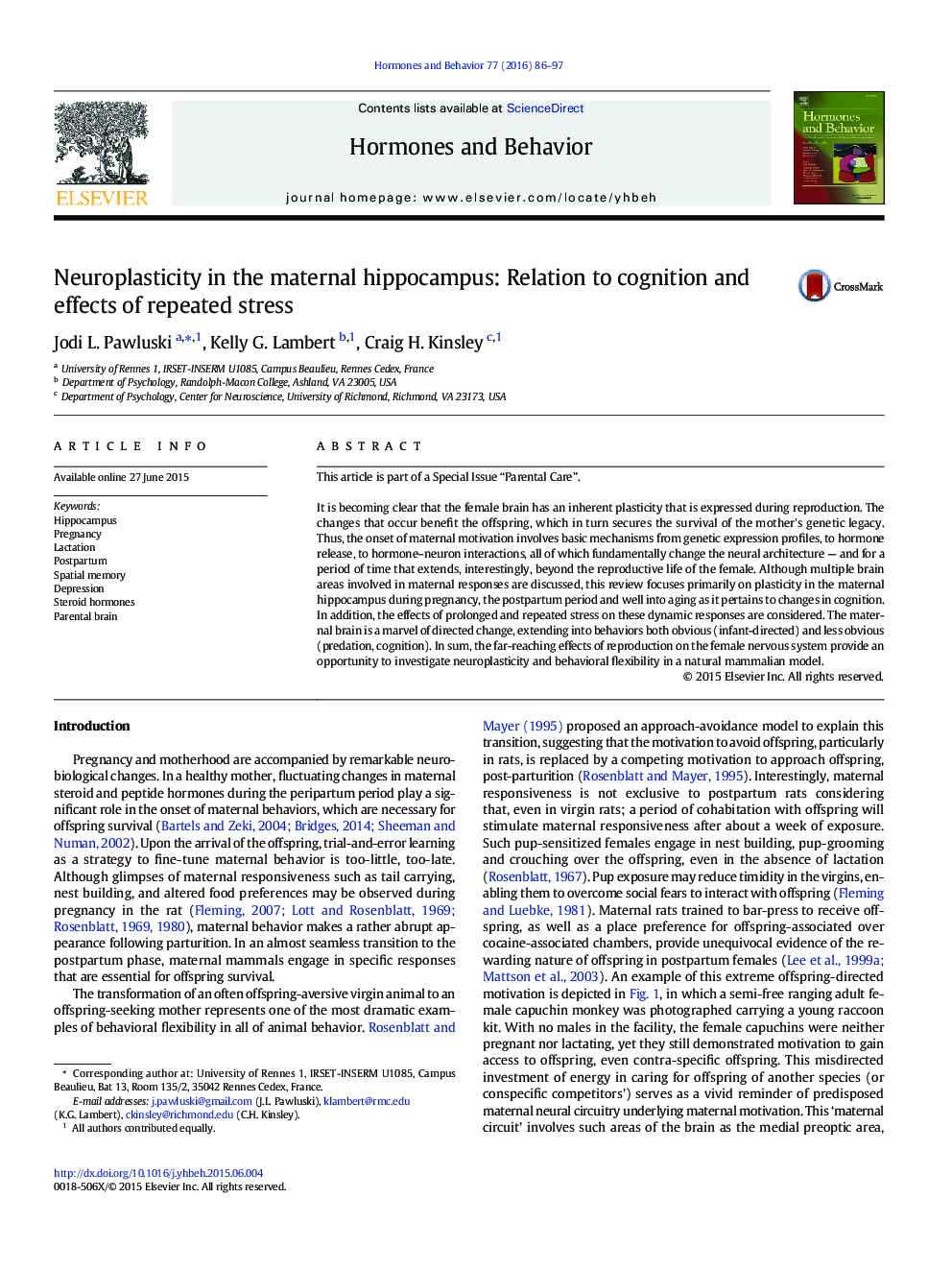| Article ID | Journal | Published Year | Pages | File Type |
|---|---|---|---|---|
| 323059 | Hormones and Behavior | 2016 | 12 Pages |
•The female brain has an inherent plasticity expressed during reproduction.•There is significant plasticity in the maternal hippocampus.•Hippocampal plasticity in the mother is related to cognition.•Repeated stress can alter remodeling of the maternal brain.
This article is part of a Special Issue “Parental Care”. It is becoming clear that the female brain has an inherent plasticity that is expressed during reproduction. The changes that occur benefit the offspring, which in turn secures the survival of the mother's genetic legacy. Thus, the onset of maternal motivation involves basic mechanisms from genetic expression profiles, to hormone release, to hormone–neuron interactions, all of which fundamentally change the neural architecture — and for a period of time that extends, interestingly, beyond the reproductive life of the female. Although multiple brain areas involved in maternal responses are discussed, this review focuses primarily on plasticity in the maternal hippocampus during pregnancy, the postpartum period and well into aging as it pertains to changes in cognition. In addition, the effects of prolonged and repeated stress on these dynamic responses are considered. The maternal brain is a marvel of directed change, extending into behaviors both obvious (infant-directed) and less obvious (predation, cognition). In sum, the far-reaching effects of reproduction on the female nervous system provide an opportunity to investigate neuroplasticity and behavioral flexibility in a natural mammalian model.
